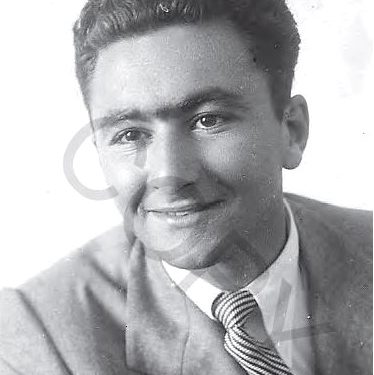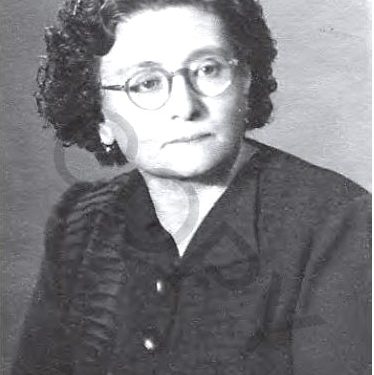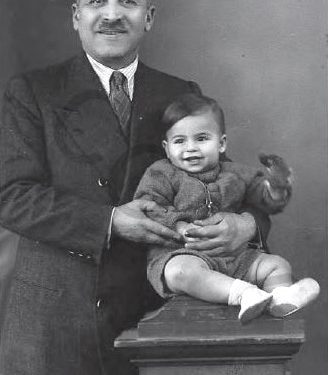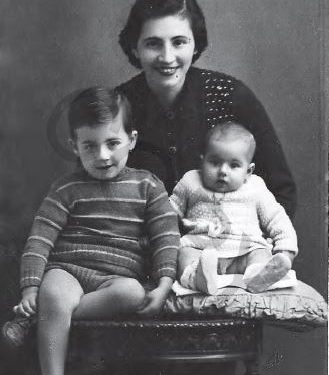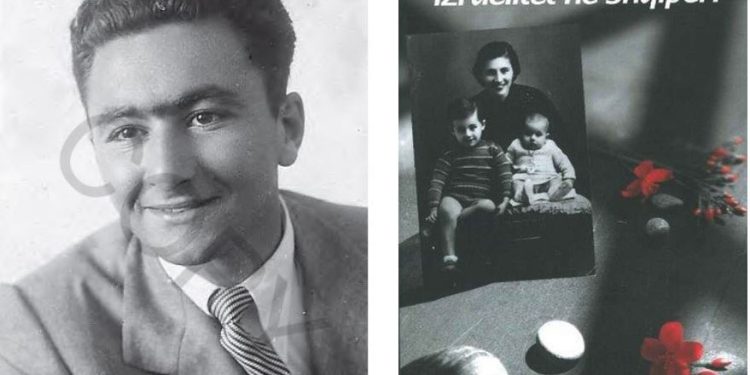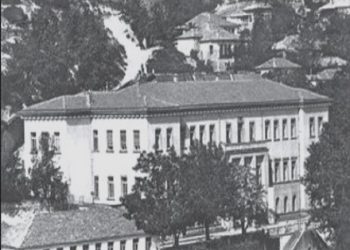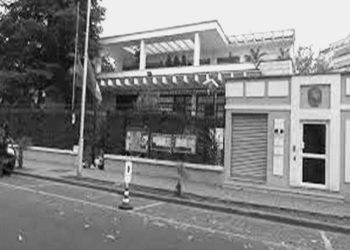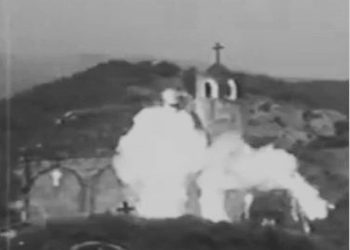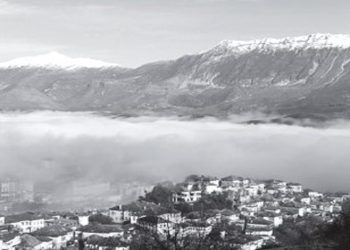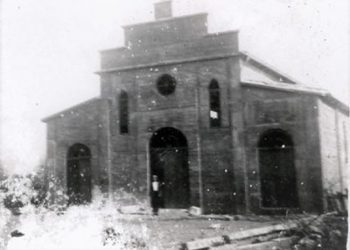By Josef Jakoel
The first part
-ISRAELITS IN ALBANIA, FROM THE 19TH CENTURY, UNTIL THE THRESHOLD OF THE SECOND WORLD WAR-
-Chronicle of arrivals and the formation of communities-
Memorie.al / About the Israelis in Albania, there is little information about the period of time that extends from the beginning of the 18th century to the beginning of the 19th century. Isolated Israelis have come to Albania, but they have not taken root nor formed stable communities. In the “Avlona” entry of the Eshkol encyclopedia (Berlin 1929) it is said that Ali Pasha Tepelena, the Albanian ruler of Ioannina, had many Israelis in his council, but still the economic condition of the Israelis was low. Because of his persecutions, many Israelis escaped from Janina and settled in Avlona (Vlora), but Ali Pasha extended his power over Avlona as well. After this tyrant ruler was executed in 1822, these Israelis returned to Ioannina.) Professor Fejzi Hoxha writes that since 1839, an Austrian doctor, Doctor Auerbach, settled in Albania, who practiced medicine in Vlora, in in 1867, as a quarantine doctor. Later he went to Gjirokastra, where he worked until around 1881-1882.)
Below, Professor Hoxha writes about another doctor named Auerbach, whom he calls “minor”, to distinguish him from the first, but he calls him of German origin and the son of the above-mentioned doctor, who made this boy with his wife Himarjote. The young Auerbach, Professor Hoxha continues, practiced his profession in Gjirokastër and then in Himarë, where he died in 1940. As can be seen from the notes above, Professor Hoxha called Auerbach a doctor, of Austrian origin, and his son, of German origin. . In fact, his notes should be supplemented by the testimony of Niqita Averbah, who is the last descendant of the Averbah family and who today lives in the village of Dhërmi, in the district of Vlora.
According to him, Doctor Averbah (senior) came to Albania from the city of has in Austria. His brother, who was consul, came with him. At the same time, the brother was also involved in the trade of wood for pipes, which he exported to England. Among the workers who were engaged in extracting wood, there was also a girl from Dhërmiu, who was very beautiful. The consul fell in love with her and took her as his wife. The doctor did not marry. He died in 1867. The consul lived in Vlora until he died in 1866. From his marriage, 4 sons were born. Their fourth became a minor doctor. He got married in Gjirokastra. Worked 3 years in Vuno and 5 years in Gjirokastra, later went to Izmir (Turkey). In 1922, he returned to Ioannina, where he died in 1927.
One of the grandsons of the consul married Shulla Nenien from the Pilovoglaj tribe of Vunoi. The groomsman was the father of Leks Thani, who had Shula from his own tribe and, when he made the wedding, he knew that Auerbach was of Israeli origin. Auerbach’s descendants, however, are already completely assimilated and retain none of the Israeli characteristics.
In Albania, other Israeli doctors also worked temporarily. Among them was Doctor Salomon Efendi, a military doctor with the rank of captain, who worked here in 1896-1897. Dr. Moisi Kofina, who came to Albania from Janina, settled in Libofshë in the district of Fier in 1905, as a doctor of the Vrioni family. He served as a private doctor, not only in Libofshë and the surrounding villages, but also often went to Fier for consultations. In 1913 he returned to Ioannina.
The first in order, who settled definitively in Albania, was Solomon Menahem Jomtov. He came from Ioannina in 1850 and settled in Delvina, together with his wife, Astro Negrin. From their marriage was born a son, Menahem Solomon Jomtov. He married Rakela Samuilidhi, originally from the Greek city of Trikalla. Rachel was Israeli, originally from Spain, but Greek was spoken in the Jomtov household, because the other members of the family did not speak Spanish. 6 daughters and 2 sons were born from this marriage. Of the daughters, the eldest died during her only pregnancy, three are married in Greece, to young Israelis, while Viktoria married Doctor Jani Melon and today lives in Fier, while the youngest, Ana, and married Dawn Sina. Ana died and was buried in Kruja. Of Menahem’s sons, the second Sami (Samuel) died in Saranda in 1937, and the other Solomoni (Tovi) Jomtov, until March 1991, lived in Vlora, and from there the same month he returned to Israel.
At first, the Jomtov family kept strong ties with Ioannina, where they came from. So, when the old man Solomon and his wife Astro died, they buried them in Ioannina. Likewise, the 17-year-old son, Sami, was also buried in Ioannina. The others are buried in Vlora and Kruja. In approximately the same year, in 1850, Jakov Ilia Vituli, also from Janina, came and settled in Gjirokastra. In 1885, his son Ilia was born there, who married Aneta Maca from Janina. From this marriage, 4 daughters and 2 sons were born. Of the girls, Fortunia, who had been interned in Nazi extermination camps and survived, died and was buried in Tirana. The other three daughters – Rashela Jakoel, Sandra Gani and Ester Prifti, are alive. Rashela and Sandra, in April 1991, moved to Israel, while Esther lives in Tirana. One of the sons, Heimi, died in Tirana and is buried there, while Zhak, married (with 2 sons and a daughter), lived in Tirana and moved to Israel in April 1991.
In 1860, Josef Matathia came from Janina and settled in Vlora with his brother, Isak (short Cako). Josefi married Riketa Romano, from the Israelis of Corfu. In 1885, the first son, Mateo, was born, followed by twins; Samuel and Stela Levi, David, Sara (called Sandra), and the last, Isaac (Zakino for short). Joseph himself died in Corfu and is buried there. In Vlora, his wife, Riketa, and children Mateo, David and Isak died. Isaac died unmarried. Samuel died in 1945, in the hell of a Nazi camp, together with his wife, Sara (Sarina), while Stela Levi married Nesim Levi. She died in Italy in 1936 and is buried in Milan.
Mateo, married to Rakela Kofinan, is survived by two sons, Josef who lives in Natania, Israel, and David (John), who lived in Fier and, in March 1991, settled in Israel. Mateo also left a daughter, Riketa Gani, who lived in Tirana, married to Elio Eliasaf Gani, and settled in Israel in March 1991.
Samuel is survived by two sons. The eldest, Pepis, lives in Switzerland, while the second, Rafael, died in Athens in 1986. David is survived by three daughters. He himself died in Vlora, from the so-called Spanish flu, in 1919, while two of the daughters, Matilda and Zhaneta, live in Athens, while the eldest, Keti, married to Josef (Pepe) Levin, has died and is buried in Vlore. Sandra Matathia, married Rafael Jakoel, left three daughters and two sons. The first daughter, Eftihia, married in Corfu, was exterminated together with her husband Rafo and her two children, Niso, 5 years old, and Lina, 2 years old, in the Nazi camp of Birkenau in 1944. The third daughter, Eftimia , died in Tirana in 1987; (her daughter, Matilda Levi lives today in Karmiel, Israel), and the other daughter, Riketa Jomtov, Tovi Jomtov’s wife, lived in Vlora with the whole family until March 1991, when she went and settled in Israel.
Of the sons, Viktori (also called Haim), died in Vlora in 1954 and is buried there, while Josefi (Cefi for short) lives with his whole family in Tirana (and in 1991, together with his wife Aliqi and two daughters, Felicita and Ksenia, moved to Israel). Stela Levi left three sons and one daughter. The three sons, Pepja, Rafael and Moisiu are alive and live in Israel. Daughter Ana, married to Marko Osmo, lived in Athens and died there in 1989. As mentioned, Isak (Zakino), the younger son of Josef Matathias, died in Vlora unmarried in 1932 and was buried there. Josef Matathias’ brother, Isaku (Cakua), married Sarina Jakoel from Ioannina and from this marriage four sons and two daughters were born. Cakua died in the village of Tragjas in Vlora and was first buried there. The place where he was buried is still called by the locals; “Tomb of Cako”.
Of the sons, two went to America and died there. The girls were married in Greece and died there. Moisiu (called Sino) and Marko (Mordo) lived in Vlora. Moses (Sino) married Stameta, from Volo, in Greece, and had four sons. Of these, three have died: Ilia Matathia, a dentist who is buried in Tirana, David (John) dead and buried in Vlora, as well as Isaac, dead and buried in Vlora. Only the third son, Josef, lives in Vlora and now lives in Israel. In 1868, Moisiu (Mushon) Kantozi, who was married to Mazalto, the granddaughter of Josef Matathi, came and settled in Vlora. From this marriage, two sons and three daughters were born. Of the daughters, Eftimia Solomoni, the wife of Jako Solomoni, died and was buried in Vlora, while the third, Krisulla, was married in Athens and died there. In Vlora, the third daughter, Reveka, the wife of Salomon Ilia Salomon, also died.
Mushon’s sons, Biro and Josef Kantozi, initially lived in Vlora and from 1915, they moved to Fier with the whole family. Biro Kantozi was married to Sarina Avram Gani, and from this marriage, three sons and two daughters were born. Biro and Sarina are buried in Tirana. Of the daughters, the eldest, Fortunata, was married in Corfu, from where she infiltrated the extermination camps and died there with her husband, Isak, and a child, the daughter Esther. The second, Malká, also called Rexhina, was married to Jesulla Jakov Batino in Tirana and lives today as a widow in Israel. Of the sons, the eldest, Moisiu, died in Tirana, leaving behind his wife, Xjulia Aser, and daughter, Fortunata. The second, Avram (called Mimiko), went to Israel, with the whole family, and so did the third, Josef, called Pepe.
Josef Kantozi, was married to Mazalo Sareta. He had a daughter, Rakela, who died at the age of 18 in Fier and was buried in Vlora. Josef’s wife died in Vlora, and Josef himself in Kavaja, where he is buried. In 1882, Josef Kohen came and settled in Delvina, together with his wife, Gracia. Both came from Ioannina. Both died in Vlora, where they had moved as a family, in 1947. Their marriage gave birth to a son, Shemo Koheni, who died in Vlora. He was married to Zhyli Kohen, and from this marriage, a son and two daughters were born. The son, Josef, abbreviated Pepo, moved in November 1990 from Vlora, to America, together with his wife, Anna Nesim Joseko, and children. Likewise, the eldest daughter, Gracia, who married Menahem (Minush) Jakov Solomon, and the second daughter, Eni, who married Orest Margariti in Kavaje.
Descendants of the Arditi family still live in Shkodër. The Arditi family came from Spain to Thessaloniki; from there they went to Dibër and later to Shkodër. They spoke Spanish in the family. The first of this family, who came to Albania from Thessaloniki, was Zhak (Jak), who was born in Thessaloniki in 1877. His father was a doctor, while he himself finished his university studies in Istanbul, as a pharmacist. He first opened a pharmacy in Istanbul, where he married Luna Russo, from an Israeli family also of Spanish origin. Around 1900, Zhaku moved from Thessaloniki to Dibër i Madhe, where he opened a pharmacy. Around 1910, he moved to Tirana, where he also opened a pharmacy. He stayed in Tirana until 1918.
Until 1925, he lived in Naples, Italy, and that same year he came to Shkodër, where the family finally settled, and stayed until March 1991. Zhak Arditi had six children, four sons and two daughters. Of these children, Virginia died accidentally. Moisiu, the eldest, lived in Shkodër, and today he lives in Israel, while the rest of Zhak’s family no longer lives and we will talk about them below. Moisiu worked as a translator, then in 1934, together with two friends, he opened a representative office in Durrës, but he left this job, because trade with Italy at the time of the Italian occupation was not done through agencies, but directly between factories and traders. After the liberation, he returned to Shkodër, where he worked as a pharmacist. Meanwhile, in 1941, he married Stela Mark Feuerstein, also an Israeli of Polish origin, both from his father and from his mother.
Moses has two daughters and a son. The daughter, Silvia, was born in 1942, lived in Tirana and today lives married in Israel, with Moisi Haim Batino and has two sons. The second daughter, Elena, was born in 1943 and lives married in Tirana, with Xhoxhi Kona, and have a son and a daughter. In 1948, Moisiu had a son, Xhoxhi, who lived in Shkodër, married to Sara Jessulla Batino and has two sons. Since 1991, the extended Arditi family has been living in Israel. Coming from Janina, in 1910 they settled in Gjirokastra, Jakov Batino and his wife, Sara (called Sarina). First they went to Leskovik, then, after a short time, they came and settled in Gjirokastër. This family, apart from the parents, consisted of five sons. The eldest of these, Haim, married Eftihia Maca, an Israeli from Ioannina. They have two sons and a daughter, Jacques, Moisi and Sara (called Sandra), married to Avram Elissaf Gani, and have one child. Haim is alive, while his wife died in 1980.
Jakov Batino’s third son, David (John) Batino, married to Esther, an Israeli from Ioannina, died in Tirana in 1980, leaving no children, while his wife lives in Israel. Even the fourth son, Jesullai, married to Malká (called Rexhina) Biro Kantozi, has died and left two daughters, Flora and Sara, who married Xhoxhi Arditi in Shkodër. The last son, Menahemi, married to Malká (called Rexhina), Eliasaf Ganin, until March 1991, lived with his family in Tirana. They have a married son, named Zhak (Zhakuli for short). They also have a daughter, married in Vlora to Moris Kuretan. One of the brothers, Marku, the second son, returned from Gjirokastra to Ioannina after the war, died there and left his wife, Nina Josef Jakoel, his son, Pepo Batino, and a daughter, Ana, married in Thessaloniki.
At the beginning of the century, David Kabiliu, who came from Preveza, lived in Vlora for a while, who later handed over the shop to his nephew, Nesim Jakov Levi. He also called his parents who, after living in Vlora for several years, died and were buried there. Around 1910, Rafael Jakoel, who worked as a commissioner between Ioannina and Vlora, came to Vlora at first provisionally. Later, during the First World War, he married Sara (Sandra) Josef Matathina in Vlora, so, after a short period, during which he himself lived in Vlora and kept his family in Ioannina; he decided to finally stay in Vlora. As mentioned above, they had five children: Eftihia, Josefi, Eriketa, Eftimia and Viktori.
The families of Nesim Levi and Rafael Jakoeli were talked about when details were given about the children of Josef Matathi, because the first married the eldest daughter and the second the youngest daughter, Sara (called Sandra). Around this date, Elisaf Avram Ganiu came to Vlora from Preveza, who brought with him his parents, who came from Naples, where they wanted to leave due to the loss of their son, Nesim, at a young age. He married Ester Ilia Jakoel, three sons were born, Avram, Elion and Nesim, and a daughter, Malká (Rexhina), married to Menahem Jakov Batino, who all lived in Tirana and Lezhë, and in March 1991, settled in Israel. The Kofina family, consisting of the older brother Matathia (Mato) and the younger, Samuel, and their sister, Reveka, settled in Gjirokastër from Janina in 1916-1917. They eventually stayed there. Mato got married and had a son, Solomon, who lives today in Gjirokastër, and a daughter, Beba, who lives in Tirana. The sister, Reveka, is in Tirana, married, without children. Samueli died in Gjirokastra, unmarried.
In 1923, Jehuda Sareta, who came from Ioannina, settled in Vlora. He married Refko Ilia Solomon. Four daughters and two sons were born from this marriage. One of the sons, Ili, died and was buried in Vlora, while the second, Rodolfi, lived in Vlora with his wife Keti and his family until April 1991, and from there he moved to Israel. Here is the place to honor the memory of Jehuda Sareta, who has exercised the functions of “hazzan” for more than 40 years. It is difficult to remember religious celebrations, marriages or funerals, without having before the eyes of the Israelis of Vlora, the image of his simple, humble, but magnificent figure. Of the four daughters, two lived as widows in Vlora, one also lived in Vlora, together with her family, while the eldest finally moved to Ioannina.
In 1925, Jakov Ilia Batino came to Vlora from Preveza and after him, the brothers Haim and Samuel Batino. When they decided to stay in Vlora, they brought there their father, Ilia, and mother, Malka. They came to Vlora in 1925 and died and were buried in the small Israeli cemetery of the city. Jakov Batino died in Vlora, unmarried. Haimi married the daughter of Jehuda Sareta, named Lika, who lived in Vlorë until 1990, from where she moved to Ioannina. Haim is dead, and from the marriage he had two sons and a daughter. Samuel married another daughter of Judah, named Anna. This lives, while Samuel has died and is buried in Vlora. He left no children.
Jakov Ilia Solomoni, with his brothers, Nesim Joseko and Moisi, came from Janina to Vlora in 1919. Initially, Jakov was a shoemaker, that’s why they gave him the nickname; Jako Kundraxhiu. Later he and his brothers took up trade.
Jakov Solomoni, married the daughter of Mushon Kantozi, Eftimina. Jakov died in 1946, in Belgrade, where he was being cured, and was buried there. He had four sons and one daughter. The daughter named Zhaneta (Neti), died at the age of 17 in 1936. The eldest son, Ilia (called Bohor, Hori for short, just like the eldest), is married to Zoi Kabili from Ioannina and has two sons and a girl, all married with children. Jakov’s second son, Moisiu, is married to Zhaneta Davidi from Ioannina, has a married son with a child, and until March 1991 they lived in Vlora, from where they went to Israel. The third, Menahem (Minush) is married to Gracia Cohen, the daughter of Shemo Cohen, and in 1990, he went to the USA. The youngest brother, Leoni, is married and lived with his wife and two daughters in Vlora, until March 1991. On this date, he returned to Israel with his family. Nesim Joseko Solomoni, is married to Xoja Negri and they have a daughter, Ana, married to Pepo Shemo Koheni. Nesim himself died in tragic circumstances in 1944, while his wife lives in Israel.
Moisi Solomoni, is married to Nina, has three sons and a daughter. Moses died in the 30s, leaving the children orphans. It was thanks to his wife, who grew up through sacrifices and succeeded. The daughter, Jean, is married to David (John) Moisi Matathia, who is deceased. There are two married sons who lived in Vlora. Of the sons, the eldest, Ilia, died in 1989; the second Avram (Mimiko) is married to Mirela Solomoni, while the third, Danieli, also lived married in Vlora. Moses Solomon’s four children, in March 1991, returned to Israel. Everyone has children. Another brother of Jacob Solomon, named Solomon Ilia Solomon, died a long time ago. He left a daughter, who married in Athens, and two sons. The little one was lost in the War. The eldest, Ilia Solomon, lived in Vlora with his wife, Sarica Negrin. They have two married daughters.
Around 1900, Beniamin Levi from Janina came to Delvina. He had two sons, Baruch and Joseph. There were also two daughters. Of these, the eldest, Esther, died in 1942, while the second, Eftihia, married in Corfu and was deported to the Israelis there in 1944. She was lost in the Nazi extermination camps with her husband and a daughter. Baruhu married Esther, the third daughter of Jehuda Sareta, and had a son and three daughters, who married and lived in Vlora. In March 1991, they all crossed over to Israel. Joseph died without leaving children. In 1930, he came to Tirana as an agent of the cruise company “Cunard Line Mark Feuerstein”, born in 1878 in Zbavash (Zbavacs), Poland, together with his wife, Franceska Wetzler, from Krakow (Poland). Mark Feuerstein, was appointed in 1931, Honorary Consul of Sweden. In those years, he received Albanian citizenship.
The Feuerstein couple had only one daughter, Stella, who started university in Vienna in 1932 for philology and continued her studies in Geneva (Switzerland). Because of the war, she came to Tirana near her parents and married Moisi Zhak Ardit. Mark Feuestein died in Tirana, in 1939, and his wife in Shkodër, in 1954. The exact date of Dr. Lazlo Kalmar’s arrival in Albania from Hungary is not known, but it is known that in the magazine “Jeta e Re” (page 65 of 1930), he wrote the article; “Climatic cure of tuberculosis in Albania”. In 1939 he fled to Yugoslavia, his wife’s birthplace, from where he returned in 1941 to Pristina, where he was received by Doctor Spiro Lito. Doctor Kalmari came to Albania for reasons unrelated to racial persecution. He worked for a long time as a physiotherapist. In 1965, already at an advanced age and especially honored and appreciated by the government, due to his qualified and conscientious work in Albania, he returned to Yugoslavia and since that time, we have not received any news about him to.
Isak Kohen, originally from Thessaloniki, came to work in Korça in 1925 and in 1935 he settled in Durrës, where he brought his family, consisting of his wife, Matilda, who died in 1941 in Durrës and was buried in Vlora . There was also a daughter, Hrisin, married in Vlora to the dentist Ilia Moisi Matathia and until March 1991 resident in Tirana. He also had his son Mino, who after the liberation, in 1946, fled and settled in Haifa, Israel, where he is still today. Isak Koheni also fled Albania to Israel in 1962 and died there. Around those years, Aneta Negrin and her son Moisi came from Janina to Vlora and settled there. In 1952, Aneta went to Israel and died there. Moisi, married to Fortunata Solomon, raised a family in Vlora and lived there until March 1991, from where he returned and settled in Israel. Around this time, around 1935, Ilia Kohen’s family came to Vlora, consisting of his wife Aneta, daughter Nina and son David (John). In 1965, after the head of the family died, this family moved partly to Greece and partly to the USA. Memorie.al
The next issue follows




